German Precision: Tertsch Leads Historic Sweep in Season Opener
World Triathlon's 2025 season opener saw an unprecedented German podium sweep in Abu Dhabi, with Lisa Tertsch outsprinting teammates Nina Eim and Laura Lindemann in the final meters.
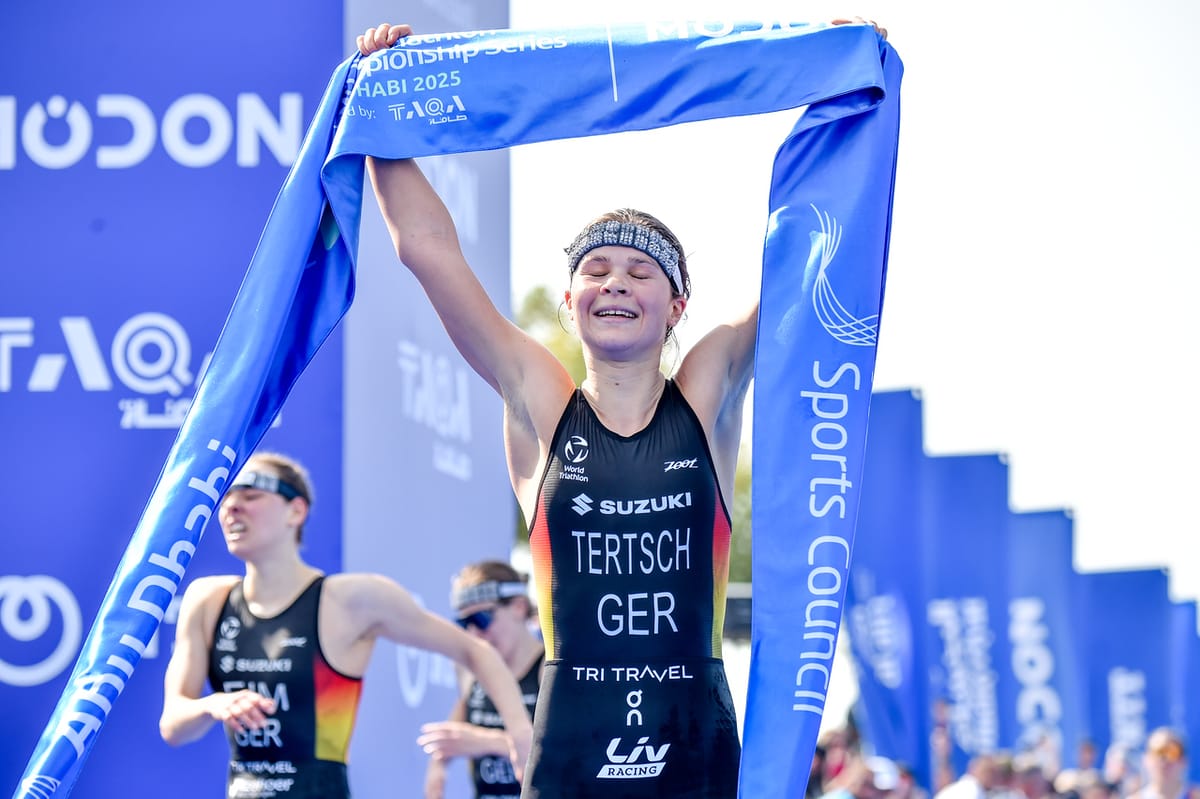
The winds that whip across Hudayriat Island in February can make or break a race. On Saturday, they helped shape one of the most remarkable moments in World Triathlon history as Germany claimed all three podium spots in the season opener, with Lisa Tertsch edging Nina Eim and Laura Lindemann in a thrilling sprint finish.
The story began in the water, where Italy's Bianca Seregni reminded everyone why she was a European aquathlon champion. She carved through the 750-meter swim in 8:56, with Belgium's Jolien Vermeylen the only athlete able to match her early pace. Their breakaway seemed promising, but the technical bike course had other ideas.
The new Hudayriat Island course proved to be more technically demanding than expected. The five-lap bike course, moving away from the familiar F1 track of previous years, created a fascinating tactical battle. This technical challenge became evident when early race drama saw Verena Steinhauser and Miriam Casillas caught in a crash, effectively ending their chances of a strong finish.
The swim phase revealed an interesting strategic choice by Tertsch that foreshadowed her tactical awareness throughout the race. While most competitors clustered together at one end of the start line, Tertsch opted for isolation, taking a far left position. "She did choose to go to the opposite end from what everyone else did," noted Jenkins during the broadcast. "I guess she chose first, so everyone maybe decided to isolate her a little bit." This decision paid off, allowing Tertsch to find clear water and emerge from the swim in a manageable position, just 22 seconds behind the leaders.
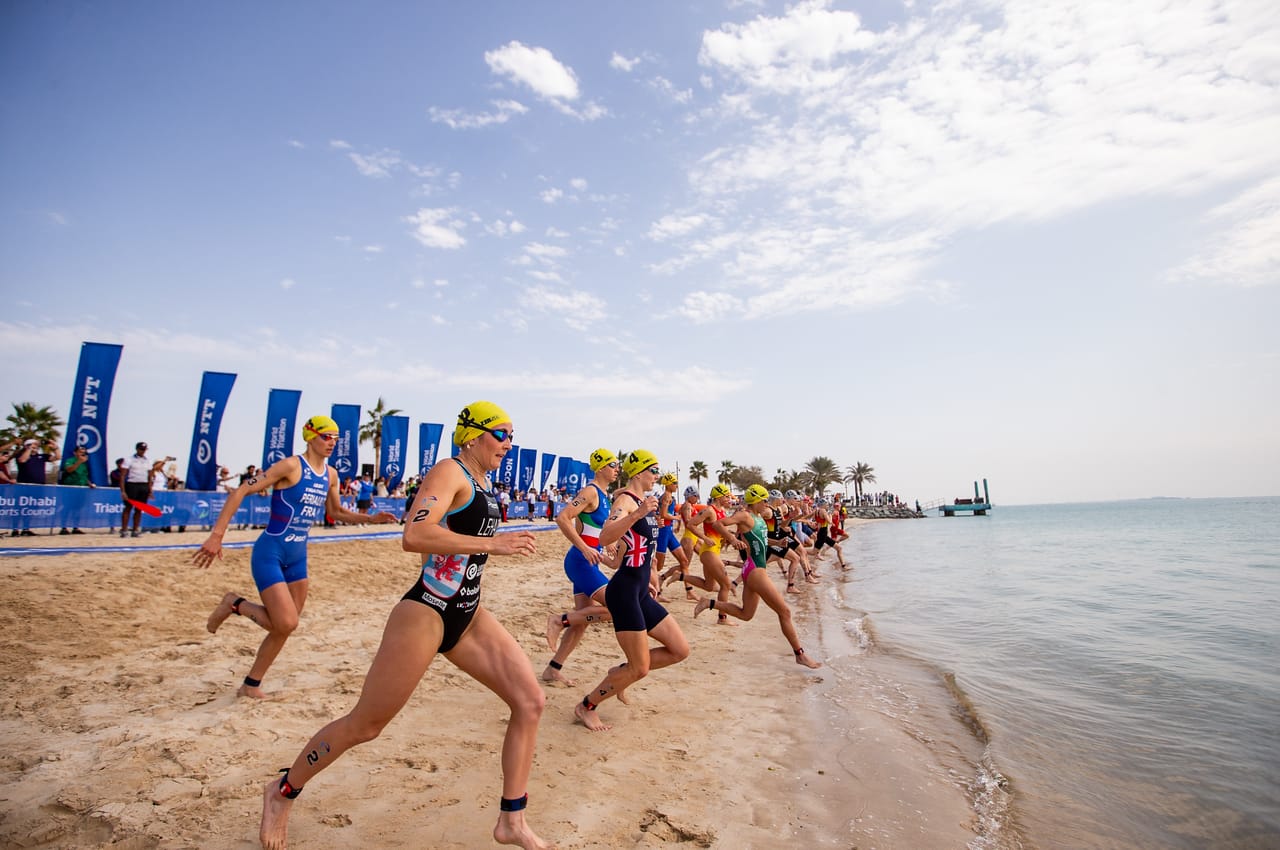
Athletes face a 750m single-lap swim in the protected waters off Hudayriat Island, where right-to-left currents and surface glare create unique challenges. Look for strong swimmers to establish early gaps here.
The middle phase of the race centered around a massive lead group of 29 athletes, but within this apparent stability, subtle positioning battles were constantly unfolding. Kate Waugh's aggressive moves on lap three particularly stood out. She used the fastest section of the course, just after the technical segment, to string out the field. While she couldn't maintain a breakaway, her efforts exposed the varying bike handling skills within the pack, especially during the stadium section where athletes had to significantly reduce speed.
What makes this race particularly fascinating is how it evolved from that massive group of 29 athletes into a four-woman shootout. The transition from bike to run saw Tertsch demonstrate why she's earned a reputation for lightning-quick transitions, taking just 21 seconds to get out onto the run course. That's three to four seconds faster than most of her competitors – the kind of margin that would prove crucial.
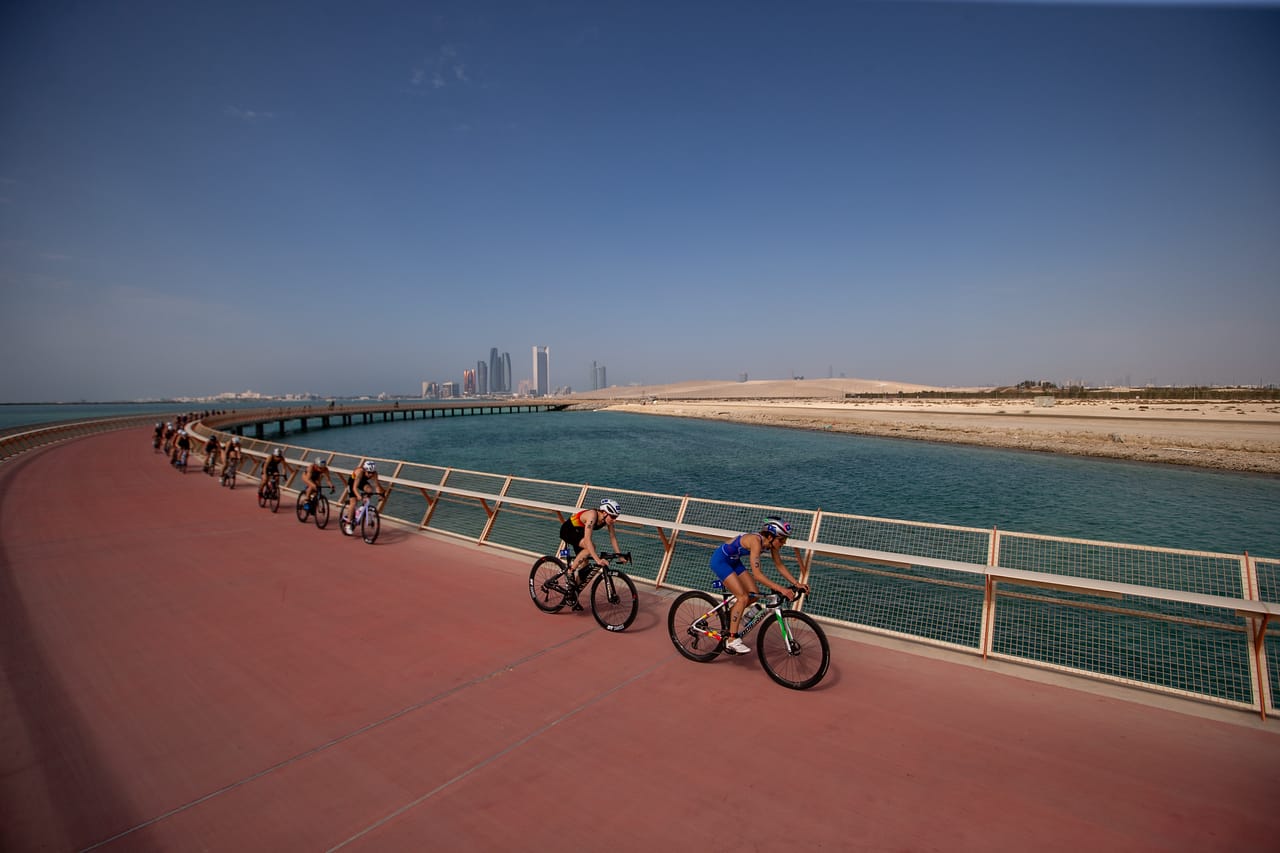
The new 19.1km bike course features 5 laps on Hudayriat Island's purpose-built circuit. Key features include a spectacular bridge crossing where speeds hit 50km/h, followed by technical corners through the stadium section. A notorious crosswind section before the bridge tests bike handling skills, while the long straight after the bridge provides prime opportunities for breakaways.
The run segment's evolution was particularly fascinating. What began as a ten-woman lead group gradually whittled down through a series of subtle accelerations. Periault's front-running strategy initially seemed masterful – she controlled the pace and forced others to run in her shadow. However, the French athlete's decision to lead into the headwind sections ultimately proved costly. "Periault looks like she's almost slowed down a little bit here. She's gone down a gear," observed Jenkins with about 1.5 kilometers remaining, just before the decisive moments began to unfold.
The German coordination in the final kilometer, while not explicitly planned, showed years of training together paying dividends. As Periault began to fade, the three Germans – all familiar with each other's running styles from countless national training camps – instinctively positioned themselves perfectly. Their final kilometer splits were remarkably consistent: Tertsch (3:13), Eim (3:14), and Lindemann (3:13).
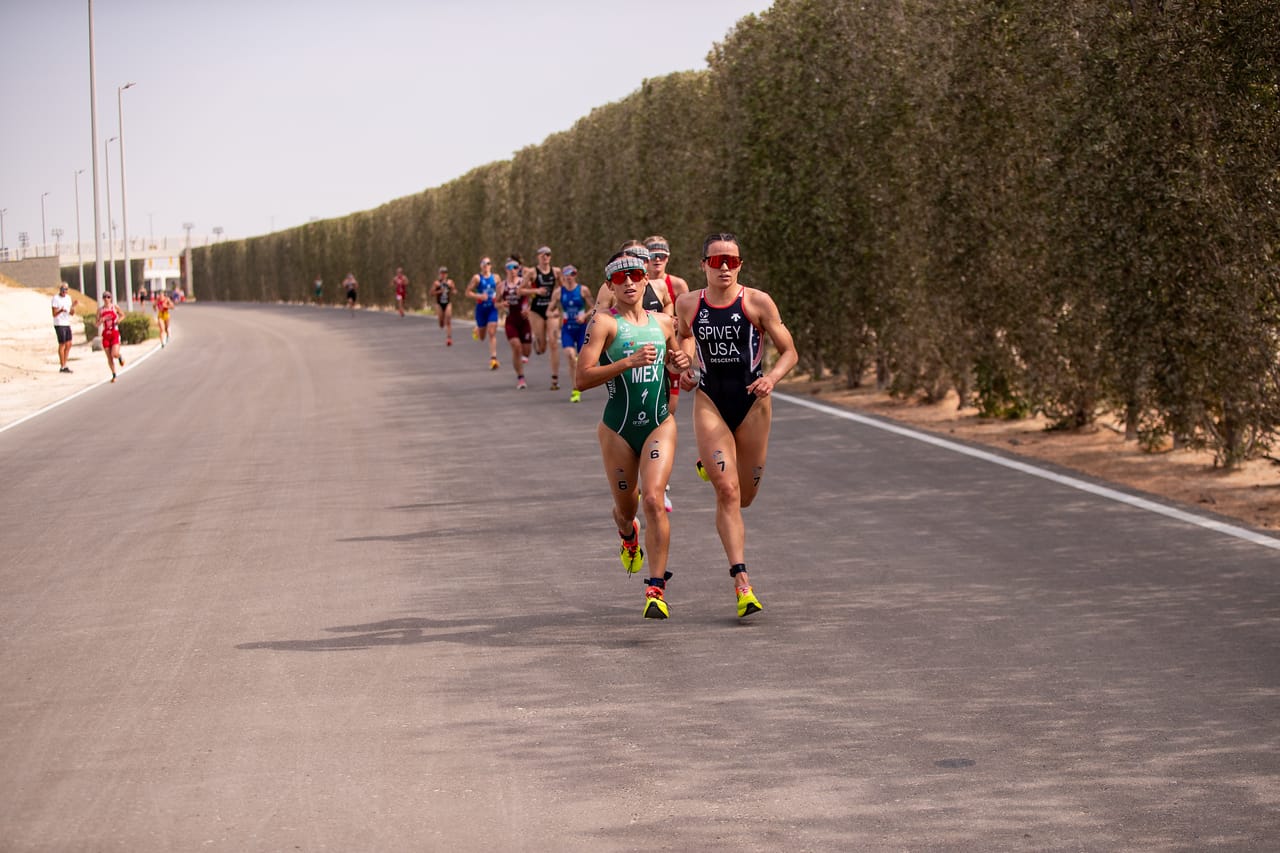
The 5km run consists of 2 laps on a fast, exposed course. Athletes battle a headwind on the outward leg before turning for a wind-assisted return. The final 800m includes a crucial final turn before the finish straight, where positioning can make or break a podium finish.
The decisive moment came with about 400 meters to go. Tertsch, who had been sitting in fourth position, made her move just before the final turn onto the blue carpet. Her finishing time of 54:29 was just one second ahead of Eim, with Lindemann another second back – gaps so small they're barely measurable but represent the culmination of years of training.
Behind the German sweep, there were other notable performances that shouldn't be overlooked. Mexico's Rosa Maria Tapia ran her way through the field to claim fifth place, proving that her late-2024 victory in Brasilia was no fluke. Her run split of 16:14 matched Tanja Neubert's for the sixth-fastest of the day.
Behind the lead drama, several athletes demonstrated remarkable resilience. Sandra Dodet, who started the run 30 seconds back from the leaders due to getting caught behind the earlier bike crash, ran the same split as Kate Waugh (16:38) to salvage a 20th place finish. Taylor Spivey, despite coming off a limited winter training block due to illness, managed to stay in contention until the final kilometre, eventually finishing 13th with a respectable 16:49 run split.
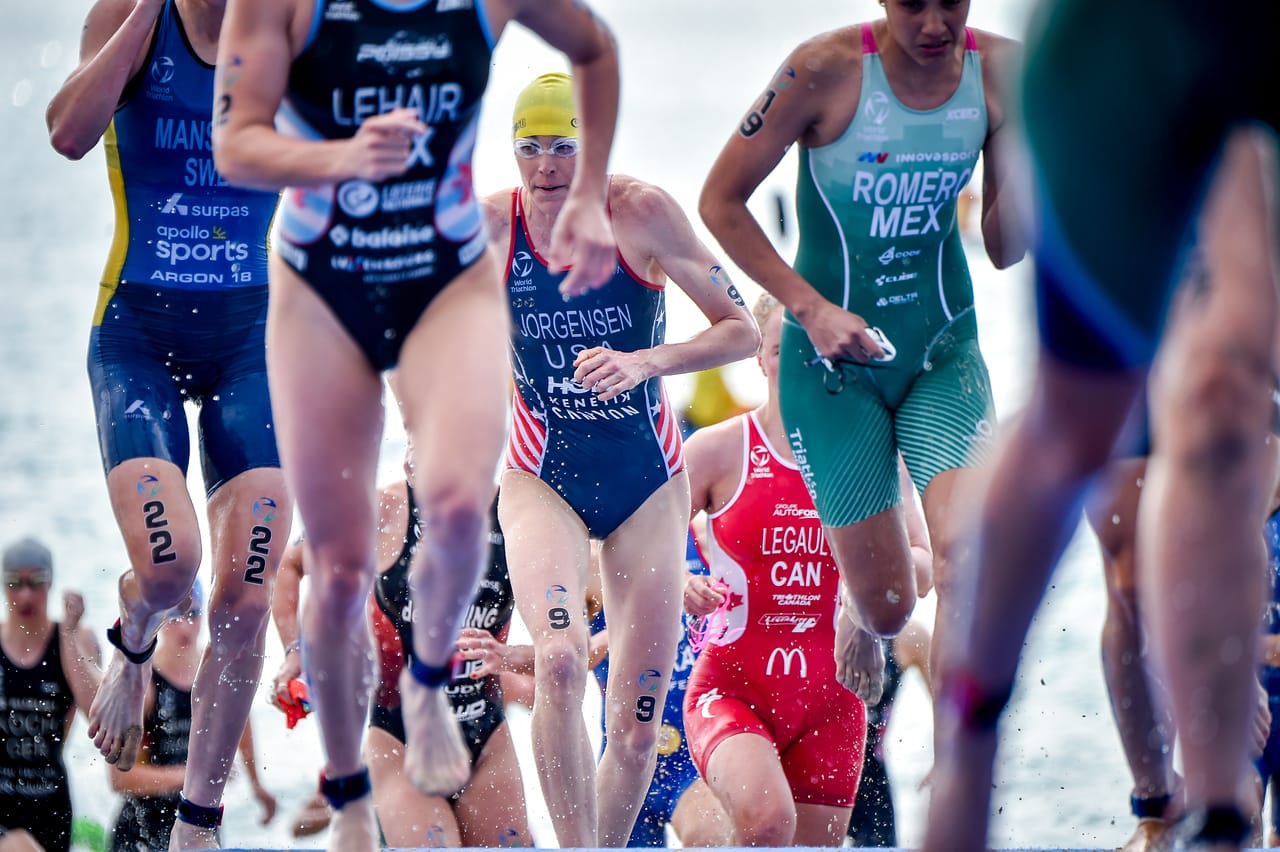
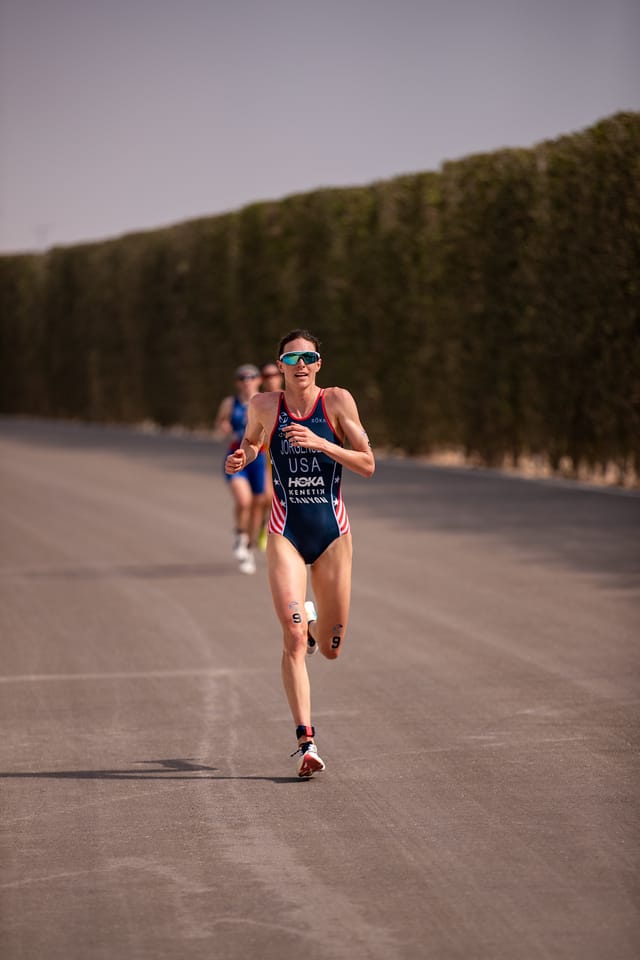
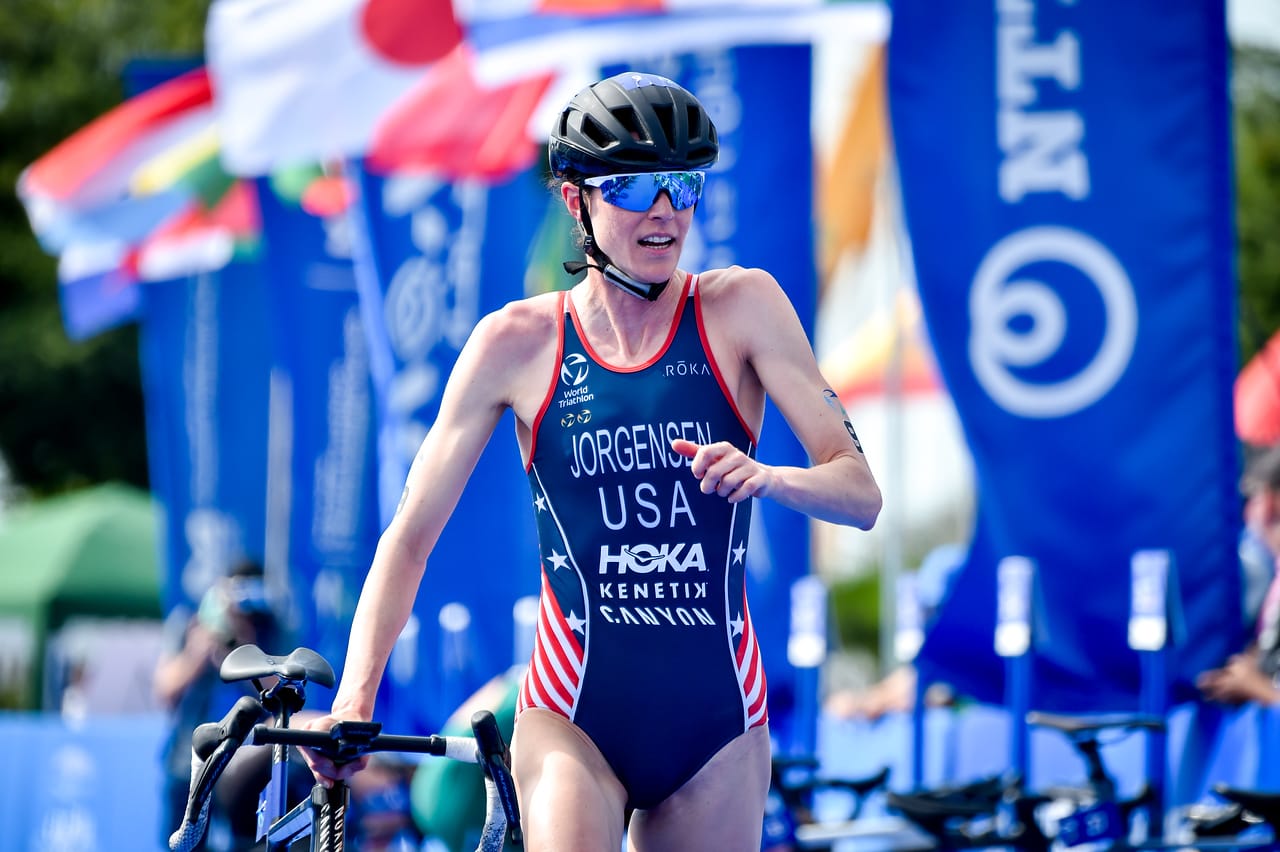
Perhaps the most surprising story was Jorgensen's struggle. The American legend, who won on this course back in 2015, found herself nearly three minutes off the pace by the finish. Her bike split of 29:16 was notably slower than the leading group's times around 28:00.
The race also highlighted the growing youth movement. Swedish phenomenon Tilda Månsson, just 20 years old, secured 12th place – her best World Triathlon Championship Series finish to date.
For Tertsch, this victory feels like the natural progression of a career that's been building momentum. In her post-race comments: "It was a cat and mouse game over the last lap... everyone has to play their cards and go with what they're good at, and I knew what I wanted to do in the end."
Only 33 seconds separated the top 10 finishers, with another minute back to 20th place. These margins, in a race lasting 54 minutes, demonstrate the incredible depth of women's triathlon at the highest level.
The significance of this German sweep can't be overstated. In a sport where traditionally nations like Australia and Great Britain have dominated, Germany has quietly built what might be the strongest women's program in the world. Consider this: they had eight athletes in this race, and four of them finished in the top 15.
As the series moves toward Yokohama in May, this race sets up some intriguing narratives. Will the Germans continue their dominance? Can Periault turn these near-misses into victories? And what happens when the absent stars like Beth Potter and Cassandre Beaugrand return to the circuit?
Women's Top 10 - Abu Dhabi WTCS 2025
- Lisa Tertsch (GER) - 54:29
- Nina Eim (GER) - 54:30
- Laura Lindemann (GER) - 54:31
- Leonie Periault (FRA) - 54:35
- Rosa Maria Tapia Vidal (MEX) - 54:46
- Tanja Neubert (GER) - 54:46
- Jeanne Lehair (LUX) - 54:54
- Bianca Seregni (ITA) - 54:57
- Diana Isakova (RUS) - 54:58
- Kate Waugh (GBR) - 55:02


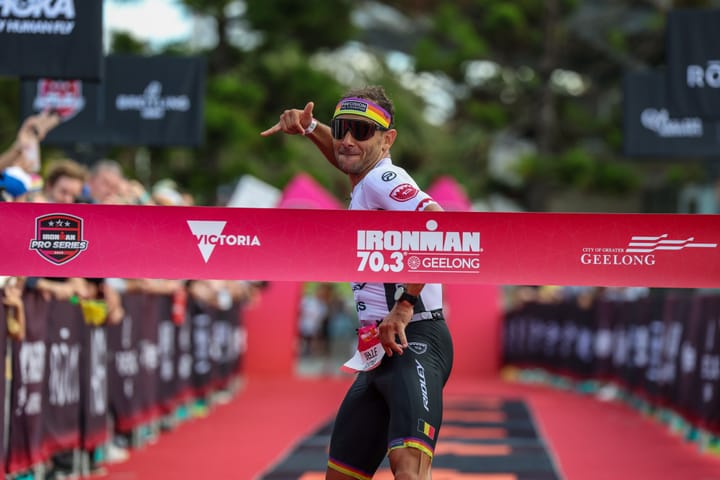
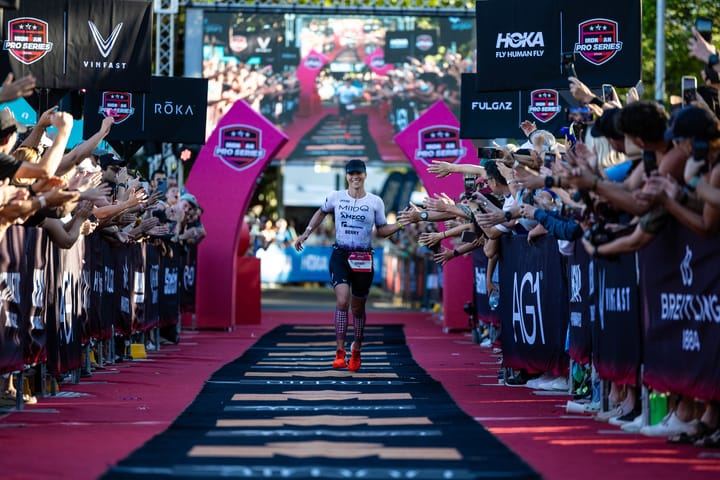
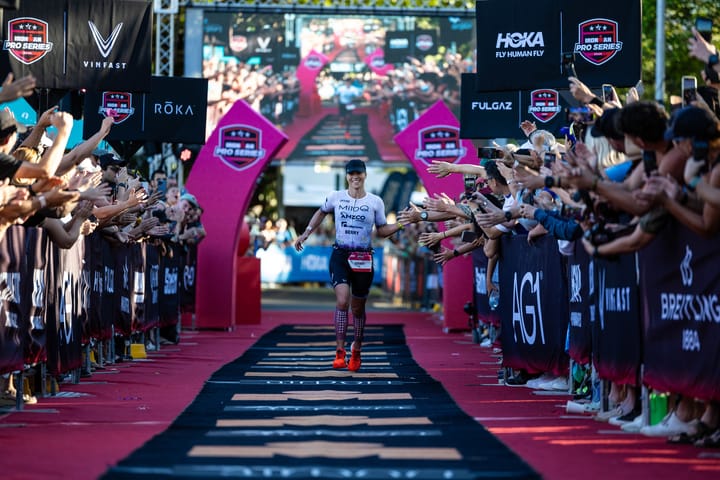
Comments ()